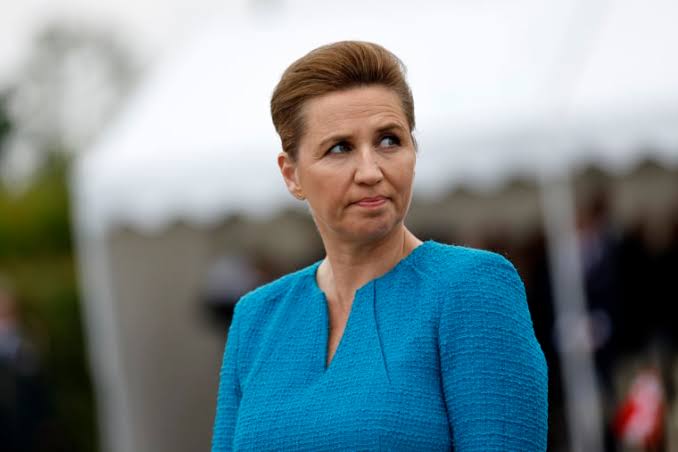Danish Prime Minister attacked in Copenhagen Square

In an alarming incident that has drawn swift condemnation from European leaders, Danish Prime Minister Mette Frederiksen was attacked by a man in Copenhagen’s Kultorvet square on June 7, evening. The Prime Minister’s office confirmed that she was “hit” by the assailant, who has since been arrested. Although shaken, Frederiksen did not sustain serious injuries.
The attack took place just before 6:00 pm (1600 GMT) as Prime Minister Frederiksen was walking through the busy square. Eyewitnesses Marie Adrian and Anna Ravn recounted the incident to the Danish newspaper BT. According to their statements, the assailant approached Frederiksen from the opposite direction and delivered a hard shove to her shoulder, causing her to stumble but not fall to the ground.
Frederiksen managed to sit down at a nearby café following the assault. The attacker, described by witnesses as tall and slim, attempted to flee the scene but was quickly apprehended by men in suits, presumed to be her security detail. Another witness, Kasper Jorgensen, told Ekstra Bladet that he saw the man subdued on the ground, looking “confused and a little dazed” as one of the security personnel knelt on his back to restrain him.
The attack on Frederiksen has sparked a wave of condemnation from European Union officials. European Parliament President Roberta Metsola expressed her support for Frederiksen, urging her to “keep strong” and emphasizing that “violence has no place in politics.” EU chief Charles Michel also voiced his outrage, calling the assault a “cowardly act of aggression.” Ursula von der Leyen, President of the European Commission, labeled the attack a “despicable act” and reiterated that such actions are antithetical to European values of democracy and peace.
Domestically, the incident has sent ripples through Denmark’s political landscape. Danish Environment Minister Magnus Heunicke took to social media to express his shock, stating, “It shakes all of us who are close to her. Something like this must not happen in our beautiful, safe, and free country.”
This attack on Frederiksen occurs amid a troubling trend of violence against political figures in Europe. Just weeks prior, Slovak Prime Minister Robert Fico was shot four times at close range in the town of Handlova. Fico survived but required extensive medical treatment, including two major surgeries. Such incidents highlight a growing concern for the safety of political leaders and the rising aggression they face while performing their duties or engaging with the public.
Following the attack, Frederiksen’s office released a statement indicating that the Prime Minister was “shocked by the incident” but offered no further details. Copenhagen police have confirmed the arrest of the suspect and stated that an investigation is underway, though they have not provided additional comments.
Frederiksen’s encounter with violence is particularly notable given her position as Denmark’s youngest prime minister, a role she has held since 2019. She successfully secured her position in the 2022 general election, maintaining a strong public profile. The recent attack, however, underscores the persistent risks faced by political leaders, even in nations celebrated for their safety and democratic stability.
The incident has prompted discussions about the security measures in place for public officials in Denmark. While the country is known for its low crime rates and high levels of public safety, this event has led to calls for reassessing the security protocols surrounding high-profile individuals. The swift action of Frederiksen’s security team in apprehending the assailant has been commended, but it also raises questions about how such an incident could occur in the first place.
As the investigation unfolds, authorities will likely examine not only the motives behind the attack but also potential lapses in security that allowed the assailant to come into close contact with the Prime Minister. The broader implications for public safety and the protection of political figures will undoubtedly be a topic of discussion in the days to come.
The attack on Prime Minister Mette Frederiksen in Copenhagen is a stark reminder of the vulnerabilities faced by political leaders worldwide. Despite the immediate arrest of the suspect and the Prime Minister’s resilience, the incident highlights the need for ongoing vigilance and robust security measures to protect those who serve in public office. As Denmark and the broader European community grapple with the implications of this assault, the message remains clear: violence has no place in politics, and safeguarding democracy requires unwavering commitment to the safety of its leaders and citizens alike.




